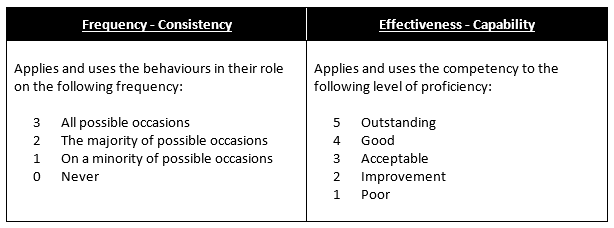06.03.2018
Brexit is likely to have a big impact on employers, employees, skills and productivity. Changes to immigration laws, demographics and the economy mean being able to adapt is what will determine the future of UK manufacturing.
What can businesses do to prepare for these changes and ensure they are flexible, adaptive and resilient?
Our expert training consultants provide their view on what businesses can start doing now to make sure they are ready for the challenges Brexit poses.
Nigel Whitworth

SMEs are especially vulnerable to changes to workforce and skill gaps that Brexit might create, although they are more flexible and can move and adapt quicker to compensate. The workforce of one of my clients, a large company, is more than 90% Polish and they are expected to be heavily affected by Brexit, since it would be very difficult for them to replace all or most of them.
The main impact will be on the food manufacturing sector, which employs a majority of people from Europe, who might not want or be able to stay in the country and continue to work here.
The question is how to make your business attractive enough to draw local workers. It could be done by offering better wages and benefits and especially by showing the potential for progression and achieving a career. Providing a training package and investing in the development of the workforce – both with new technical skills as well as management and leadership skills – is critical to attracting workers by enabling them to move up the professional ladder.
Companies need to understand their local market and local available workforce and decide what is it they are looking for that would motivate those people and help them decide to work for those businesses. It’s not enough to provide jobs, they will need to be able to offer a career, otherwise they risk employing only casual labour.
One set of skills that I see on the rise now is trainer skills. A lot of companies are training their trainers to enable them to provide higher quality and more effective training to their workforce. It shows that companies are realising that investing in this is crucial for their growth.
Developing management and leadership skills is also essential, because managers and leaders come from within the workforce and if that workforce is not up to the task then this will cause a skills gap that will have considerable impact on the business.
My top advice:
- Rethink your contract packages to include attractive benefits.
- Provide a training package in the employment of all workforce.
- Position yourself as an employer for careers, not jobs.
Garry Platt

In my view the same strategies apply for both SMEs and large companies: the competency framework.
Companies should review their competency pool, see what abilities, skills and approaches they currently possess and try to determine what is going to be the demands that will be made on the business and what are the competences that will be required to respond to that.
The business has to ask itself: how are we equipped to operate in this new environment?
Determine what you want from your people and then start to assess them against two criteria: Frequency or consistency, effectiveness and capability.
1. How frequently do they use these skills and abilities?
2. How effective are they when they do that?

The competency framework doesn’t have to be a 3-year plan, it could simply look on the next six months, determine the immediate demands and requirements that the business needs from its people and focus on giving people goals in those areas and giving them feedback on the progress they make. Many businesses have not yet begun to do this and are waiting to see what happens, but some companies are already recognising the challenges ahead and are starting to plan and prepare for them.
A major ability that will be crucial is the ability to respond effectively to change. That is the one area of competence and development that everybody in any organisation is going to need, and in conjunction with that, the ability to recognise what they need in their own personal learning development.
It will not be technology, computers or artificial intelligence that will get your business through the next period, it’s going to be people. You need to invest in those people in order to be able to do that successfully.
All of these plans and approaches should not be any different to what business should be doing five years down the line regardless of Brexit. What has changed is that now the stakes are higher. If you ignore the development of your managers during this period it guarantees that the problems you encounter and the issues and challenges you face will be exacerbated and increase exponentially.
My top advice:
- Assess what abilities, skills and competencies your workforce possesses.
- Project future demand on your business and identify key skills to cope with that.
- Prepare a Training and Development plan to fill the gaps.
Mike Brown
The Chartered Institute for Personnel and Development (CIPD) suggested in their recent ‘Resourcing and Talent Planning 2017 Survey’ a number of key areas that may be affect organisations in the Brexit process.
The organisation’s emphasis on developing its existing staff
What this may mean to the organisation:
- Greater awareness of the internal capability and capacity of their workforce.
- Carrying out more accurate internal assessment of existing skills of the business and how this differs from the current requirement.
- Carrying out a detailed analysis of the future skills required in the business
- Stronger learning and development presence or resource within the organisation and/or HR function
- Greater emphasis on the performance review/appraisal process to formally identify development opportunities and gaps.
Difficulty in recruiting senior/strategic or skilled/technical staff
What this may mean to the organisation:
- Investment in longer term succession planning to develop the ‘future leaders’ of the business – both time and money.
- Closer alignment between the organisations in the ‘group’ to share existing senior leadership skills through formalised secondment programmes.
- Potential re-evaluation of how pay grades are determined, especially in view of technical skills that may be more valuable to the business than some managerial grades.
Competition for well qualified talent
What this may mean to the organisation:
- Increased importance on the culture of the organisation and how this can be a major factor in attracting talent.
- The development focus on leaders within the business to create the right culture that appeals to highly skilled people who ‘have a choice’ of where they work.
- Closer links with external partner organisations for both recruitment and the development of talent.
My top advice:
- Put a greater emphasis on developing your existing staff.
- Facilitate internal upward mobility.
- Put development focus on leaders creating an appealing corporate culture.


